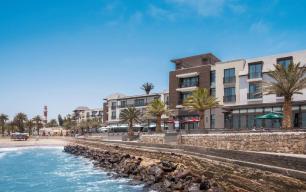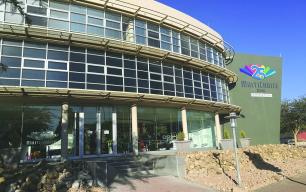Balancing Growth and Social Upliftment: (Experts weigh in on Namibia’s National Budget)

Namibia’s economic and social development took center stage recently as the Economic Association of Namibia (EAN), in partnership with Capricorn Group Limited and the Hanns Seidel Foundation Namibia, hosted a high-level public discussion under the theme “Balancing Growth and Social Upliftment: The National Budget in a New Dispensation.” The event, held at the Hilton Hotel, convened the nation’s leading economic minds, policymakers, and civil society representatives to analyze the budget’s potential as a catalyst for sustainable economic growth and social progress.
The discussion occurred against the backdrop of Namibia’s historic political transition, with the inauguration of its first female president and heightened expectations for government-driven national development. Stakeholders expressed keen interest in how the upcoming national budget would influence job creation, infrastructure development, and economic stability while ensuring fiscal discipline.
POLICY CLARITY
Managing Director of High Economic Intelligence (HEI), Salomo Hei, delivered a compelling presentation highlighting the budget’s transformative potential. He cautioned against over-reliance on the budget as a singular economic tool, instead advocating for clear policy direction and strategic resource utilization.
“We should not use the budget as a single tool for economic transformation. We need policy clarity for clear transformation,” Hei emphasized.
He stressed the necessity of investing in infrastructure where it is most needed, citing Grootfontein as an example of a town that could benefit from becoming a dry port to decentralize services and promote economic growth. Hei also raised concerns about inefficient healthcare spending, arguing that budget allocations should be tied to tangible outcomes rather than mere expenditures.
On job creation and economic sustainability, Hei warned that every dollar spent must generate a meaningful impact, particularly in housing, employment, and social services. He also questioned the omission of tourism from the government’s priorities, urging better alignment between policy objectives and economic realities.
PRAGMATIC SOLUTIONS
The Chairperson of the EAN, Jason Kasuto, focused on the importance of public-private partnerships in executing the budget. He underscored the urgency of addressing Namibia’s economic stagnation, particularly as the country nears Vision 2030.
“We need pragmatic solutions to unemployment and bureaucratic inefficiencies,” he said, stressing that the budget should create an enabling environment for business and social development.
The Associate Dean at the Namibia University of Science and Technology (NUST), Professor Teresia Kaulihowa, emphasized a people-centered approach, advocating for quality improvements in education and healthcare. She questioned the effectiveness of current budget allocations, arguing for a shift from operational costs to impact-driven interventions.
“Revenue mobilization must be prioritized to ensure sustainable development in key sectors,” she urged.
FISCAL PRUDENCE
Chief Economist at Capricorn Asset Management Floris Bergh examined the budget from a macroeconomic perspective. He warned against excessive borrowing to fund infrastructure projects and questioned the sustainability of welfare programs without parallel job creation.
“We should not reinvent new problems but should solve existing ones,” he advised, highlighting concerns about policy continuity amid ministerial restructuring.
The dialogue concluded with a consensus on aligning budgetary allocations with Namibia’s broader development goals. Participants called for greater transparency, accountability, and inclusivity in budget formulation, urging policymakers to adopt strategies that foster economic diversification, resilience, and equitable growth.
The event, live-streamed via EAN’s official Facebook page, provided a platform for broader public engagement, reaffirming the national budget’s role as a developmental instrument crucial to shaping Namibia’s future.
- 307 views










Comments